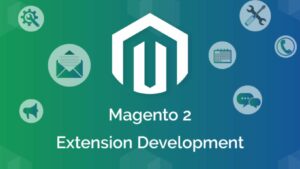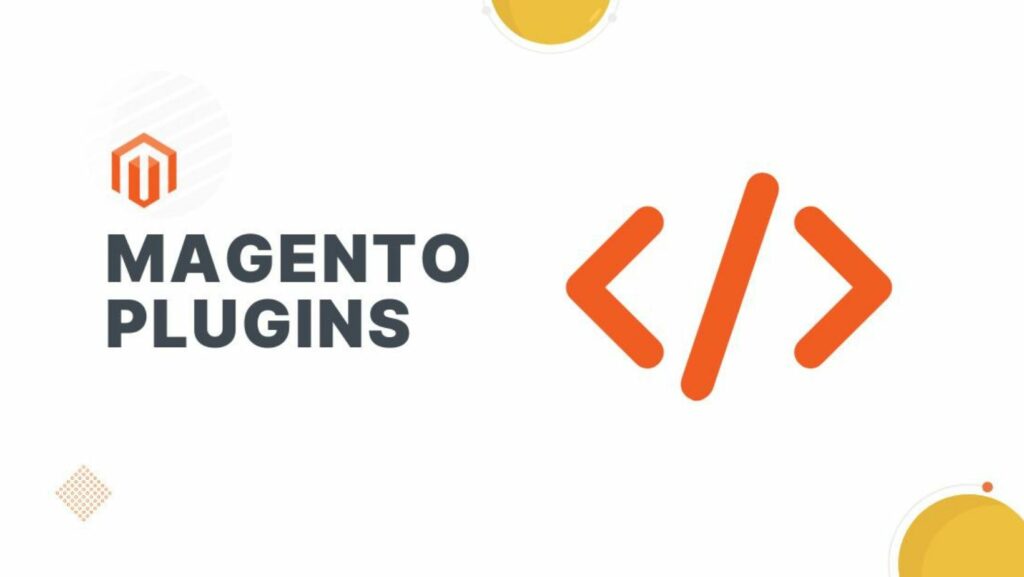Magento Plugin Development
 Are you looking to enhance the functionality of your Magento e-commerce store? Dive into the world of Magento plugin development. Creating custom plugins tailored to your specific business needs can take your online store to the next level. These plugins offer unique features and functionalities that can set your store apart from the competition.
Are you looking to enhance the functionality of your Magento e-commerce store? Dive into the world of Magento plugin development. Creating custom plugins tailored to your specific business needs can take your online store to the next level. These plugins offer unique features and functionalities that can set your store apart from the competition.
With Magento’s flexible architecture, plugin development allows for seamless integration of new features, improved performance, and enhanced user experience. Whether you’re aiming to streamline the checkout process, optimize product management, or implement personalized marketing strategies, custom plugins can be the key to unlocking your store’s full potential.
Stay tuned to discover the essential aspects of Magento plugin development and how it can revolutionize the way you do business online.
What Is Magento Plugin Development?
Magento plugin development refers to the process of creating custom plugins that integrate seamlessly with a Magento-powered e-commerce store to enhance its functionality. Plugins play a crucial role in extending and customizing the features of the store to meet specific business requirements and cater to unique user needs. Let’s delve into the basics of Magento plugins and understand how they differ from other extensions.
The Basics of Magento Plugins
Magento plugins are pieces of software that are designed to add new features or modify existing functionalities within the Magento platform. These plugins are created using Magento’s architecture and are specific to the needs of the store they are developed for. Developers can leverage plugins to integrate new payment gateways, improve order management systems, enhance  product searches, and much more.
product searches, and much more.
Plugins in Magento follow a modular approach, allowing developers to customize and extend the store’s capabilities without making direct changes to the core code. This modular design ensures that plugins are easy to install, update, and remove, providing a flexible and scalable solution for store owners looking to enhance their online presence.
While plugins and extensions are often used interchangeably, there are distinctions between the two in the context of Magento development. Magento plugins are specifically tailored to modify or extend the core functionalities of the platform, whereas extensions encompass a broader category of add-ons that can include themes, language packs, and other customizations.
Plugins in Magento have direct access to the core functionality of the platform, enabling them to interact closely with the store’s operations and make significant changes to its behavior. On the other hand, extensions may focus on design elements, performance optimizations, or integrations with third-party services, offering a wider range of enhancements beyond core functionality modification.
Essential Tools for Magento Plugin Development
Magento plugin development requires specific tools to streamline the process and ensure the quality of the plugins created. Here are the essential tools that developers can utilize to enhance  their Magento plugin development experience:
their Magento plugin development experience:
When developing Magento plugins, utilizing the Magento Code Generation Tool can significantly expedite the development process. This tool assists developers in generating the necessary files and directories required for creating a new module in Magento. By automating these initial setup steps, developers can focus more on the actual plugin logic and functionality, saving time and effort in the development process.
In Magento plugin development, debugging tools play a crucial role in identifying and resolving issues within the plugins. Developers can use debugging tools like Xdebug, Zend Debugger, or Magento Profiler to analyze code execution, track performance bottlenecks, and troubleshoot any errors that may arise during development. These tools help in ensuring the stability and efficiency of Magento plugins, allowing developers to deliver high-quality solutions to enhance e-commerce stores seamlessly.
Key Benefits of Developing Plugins for Magento
Developing plugins for Magento offers significant advantages that enhance the functionality and performance of e-commerce stores.
Enhance the functionality and customizability of e-commerce stores by developing plugins for Magento. Plugins allow developers to add specific features and tailor the store’s capabilities to meet unique business requirements. For instance, a custom plugin can enable advanced product filtering options or integrate a personalized recommendation system based on customer preferences.
By developing plugins for Magento, store performance can be significantly improved. Optimized plugins can enhance loading speeds, optimize database queries, and streamline processes, resulting in a smoother and faster user experience. For example, a well-designed caching plugin can reduce page load times and lower server response times, improving overall site performance.

